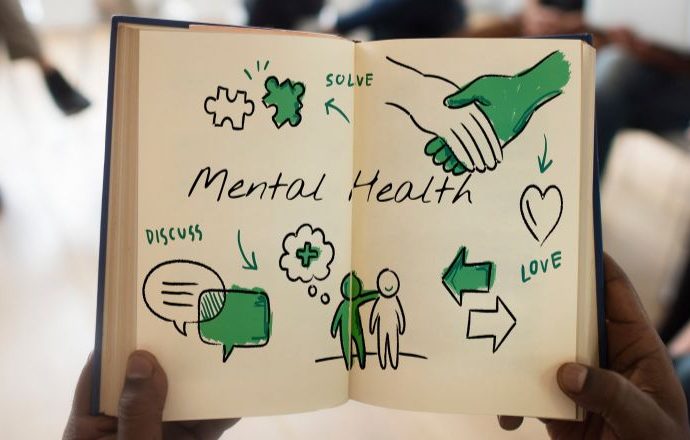Similar to humans, dogs can also experience anxiety, which, although uncomfortable, is a natural and essential emotion. Anxiety in dogs is not breed-specific and can manifest differently in each individual canine. It is normal for dogs to feel anxious occasionally, but if left unchecked, excessive anxiety levels may lead to an anxiety disorder. Without proper intervention, anxiety in dogs can result in behavioral problems and other issues.
How can you recognize if your dog is experiencing anxiety, and what steps can be taken to address it? In this article, we will delve into the key aspects of canine anxiety, including common triggers, signs, and treatment options. Moreover, we will share valuable tips for preventing anxiety, empowering you with the necessary knowledge to support your dog should they ever face anxiety challenges. With the right knowledge, you can be the best pet parent possible!
Causes of Dog Anxiety
Anxiety in dogs can manifest in various forms, often triggered by specific stimuli or circumstances. Noise-induced anxiety, for instance, results from loud sounds, while encounters with unfamiliar people, animals, or objects may also evoke fear. Visual stimuli, such as hats or umbrellas, and new environments or situations, like vet visits or car rides, can similarly cause anxiety. Additionally, some dogs may react with apprehension to certain surfaces, like grass or wooden floors. While brief reactions to these triggers may be typical, dogs prone to anxiety might experience more severe and lasting effects.
- Separation anxiety is another prevalent issue, affecting an estimated 14% of the canine population. Dogs grappling with this condition struggle to find solace when left alone or separated from their human family. This distress often leads to undesirable behaviors, such as indoor elimination, destruction of property, and excessive barking.
- As dogs age, they may develop age-related anxiety, which is often linked to cognitive dysfunction syndrome (CDS). CDS in dogs is characterized by a decline in memory, learning, perception, and awareness, akin to the early stages of Alzheimer’s disease in humans. This cognitive deterioration understandably results in confusion and heightened anxiety among senior dogs. Providing accurate information and understanding these anxiety triggers can help pet owners better support their canine companions through various life stages and circumstances.
When does your dog need anti-anxiety medication?
Medication may help your furry friend feel calmer, allowing them to be more receptive to behavioral training. However, medication alone is not a comprehensive solution. If you lack experience in dog training, consider enlisting the help of a professional behaviorist. As Dr. Ashley Rossman, a veterinarian at Glen Oak Dog and Cat Hospital, explains, “Medication can be beneficial, but it’s crucial to address the underlying behavior as well.”
The appropriate medication for your pet will depend on their specific symptoms and circumstances. Veterinarians might consider a variety of anti-anxiety medications for dogs, including Prozac, Xanax, Amitriptyline, Buspirone, Clomicalm, Sileo, Valium, Ativan, Paxil, and Zoloft. Some of these medications are also used for humans and have been approved by the FDA for canine use. However, it’s essential not to administer your own medication to your pet, as improper dosing or usage can lead to severe side effects, such as heightened anxiety and irregular heart rates. Dr. Ochoa often recommends Prozac for separation anxiety and aggression. For more sporadic anxiety, like that triggered by fireworks, calming Trazodone may be the preferred choice. “Some dogs also benefit from calming medication during vet visits or grooming appointments,” Dr. Ochoa adds.
Depression in dogs is less frequent and, as a result, is not often treated with medication. However, significant changes in a dog’s environment, such as the arrival of a new pet or the loss of a companion, can lead to despondency. Fortunately, dogs usually recover quickly from depressive episodes. Encouraging and rewarding positive behaviors like playfulness and wagging tails can speed up the healing process. If your dog’s mood remains low, a veterinarian may prescribe medication as a temporary aid to alleviate their symptoms
Buy Anti-Anxiety Pills For Dogs Online
As a reliable and trustworthy platform, we are dedicated to providing you with the fastest delivery for your medical needs. Our team is available 24/7 to address any questions or concerns you may have regarding medications. Our experienced pharmacists are always on hand to assist you, ensuring you receive the best possible care.
Buying anti-anxiety pills for dogs has never been easier, with the option of convenient midnight delivery at competitive prices. We are just a click away, and your order will be delivered to your doorstep within 2-4 working days.
Rest assured, our payment gateway is secure, safeguarding your personal information and financial transactions. Additionally, we offer discounts, coupons, and special offers, making your purchase even more affordable.











